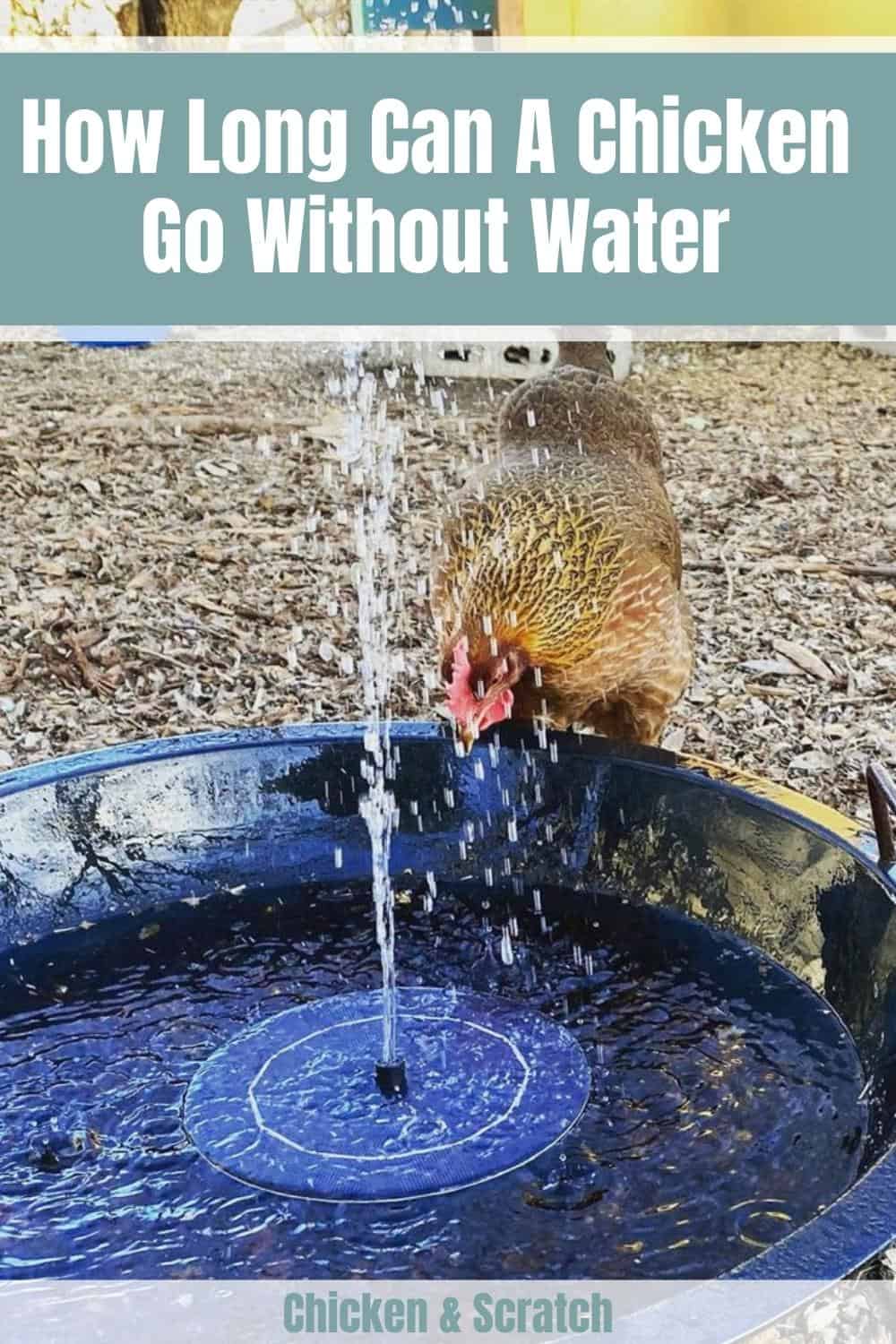The answer to the question, “How long can a chicken go without water?” is determined by various factors. Chickens can generally survive without water for 48 hours (or two days). However, this duration can be less if the weather is warm and sunny. Chickens living in hot climates will begin to die within 12 hours if they do not have access to water.
How Long Can A Chicken Go Without Water?
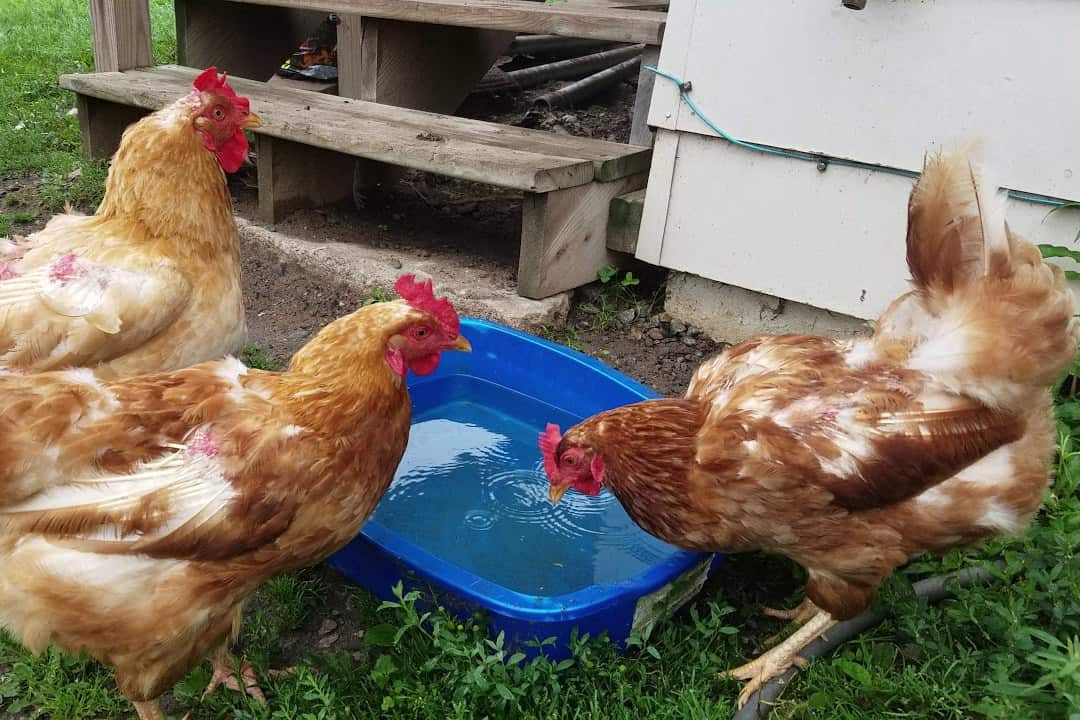
The answer to this question depends on the type of birds you have. Other aspects of their behavior, such as egg-laying, molting, and feather growth, can also affect their water needs.
However, for chickens in areas with extreme heat, the situation may be more dire. They might struggle to survive more than 8 hours without adequate water supplies in intense heat.
How Long Can Chicks Go Without Water?
Chicks drink lesser amounts more frequently and will suffer or die faster than adults since they lack the reserves. Baby chicks may only survive up to 12 hours without water before potentially succumbing. But it is already harmful to them if they do not have access to water for more than 6 hours.
It would be best to provide your young chicks with enough water not just for drinking but also for cooling. Chicks, like any other animal, need water to stimulate specific biological processes within their body.
Chicks consume less water than adult chickens. But, because they are developing faster and have a higher metabolism, they require water frequently. So, it necessitates the provision of a consistent supply of water to these young birds.
The Consequences and Signs of Dehydration in Chickens
Water is essential in your chickens’ daily lives. Your birds may not live for long if they do not have enough water. Also, a lack of water may drive them to cease laying for some time until they have enough.
When your chickens lack access to water, their crops get dry, and the crop cannot moisten meals, which affects their digestion. Also, if you do not solve this problem immediately, the infected chicken can eventually die.
Here are some common symptoms of dehydration in chickens:
- Lethargy and Weakness
- Loss of Appetite
- Decreased or Halted Egg Production
- Difficulty Breathing
- Loss of Skin Elasticity
- Sunken Eyes
- Abnormal Feces
How Long Can A Chicken Go Without Water In The Winter?
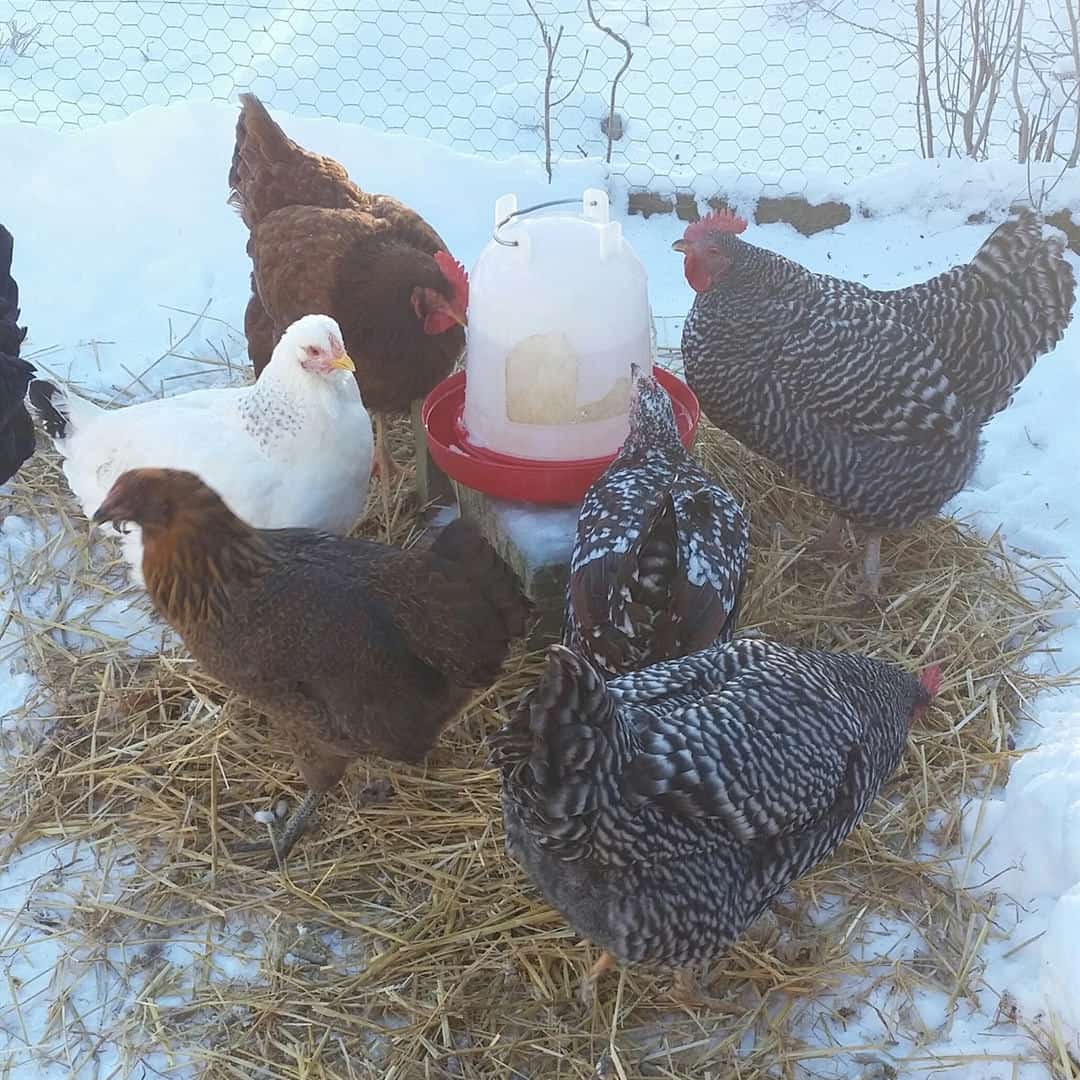
The consequences also apply if you raise your birds in areas prone to harsh winter temperatures. It is because all available water freezes solid, making drinking difficult for your flock.
A chicken can go 72 hours without water in the winter. You get a little more time because it is cooler. Also, they molt, regrow their feathers, or stop laying eggs during this time. So, a scarcity of water will not harm them in the same manner as in warmer climates.
If desperate for water during the winter, many chickens might resort to consuming snow. Although they may survive, you can bet it will not go well with them. As a result, make sure to supply clean, fresh water to your flock over the winter.
Do Chickens Need Water At Night?
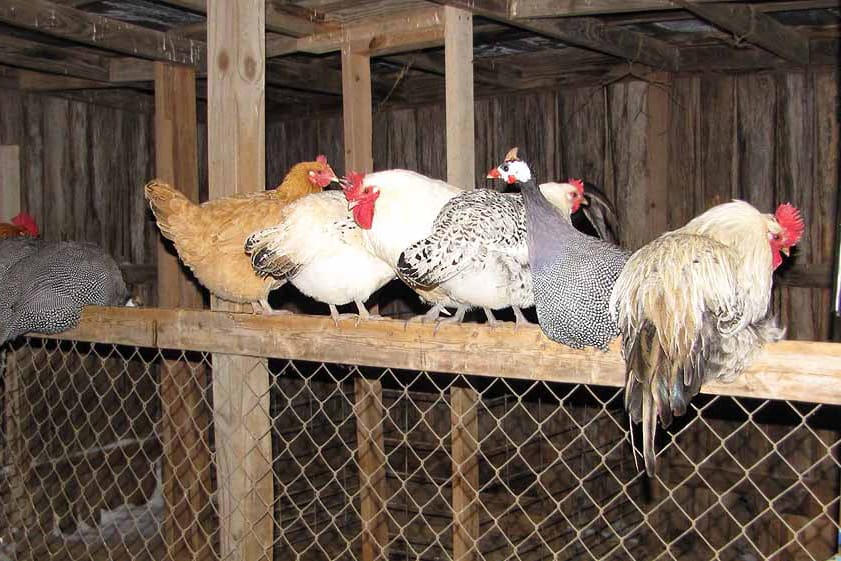
Chickens are diurnal animals, which means they are awake during the day and sleep at night. Providing them with water at night is pointless because they may not drink it. The same is true with feeding. So, it is possible to keep the chicken feeder and waterer outside the coop rather than within.
However, this might be a bad idea for several reasons. For example, excess feeders can get wet and moldy. Also, the feeder and waterer may attract pests that can infect your birds and affect their health. As a result, keeping their feeders and waterers indoors may be safer and more cost-effective.
3 Tips For When You Leave Your Chickens Without Water
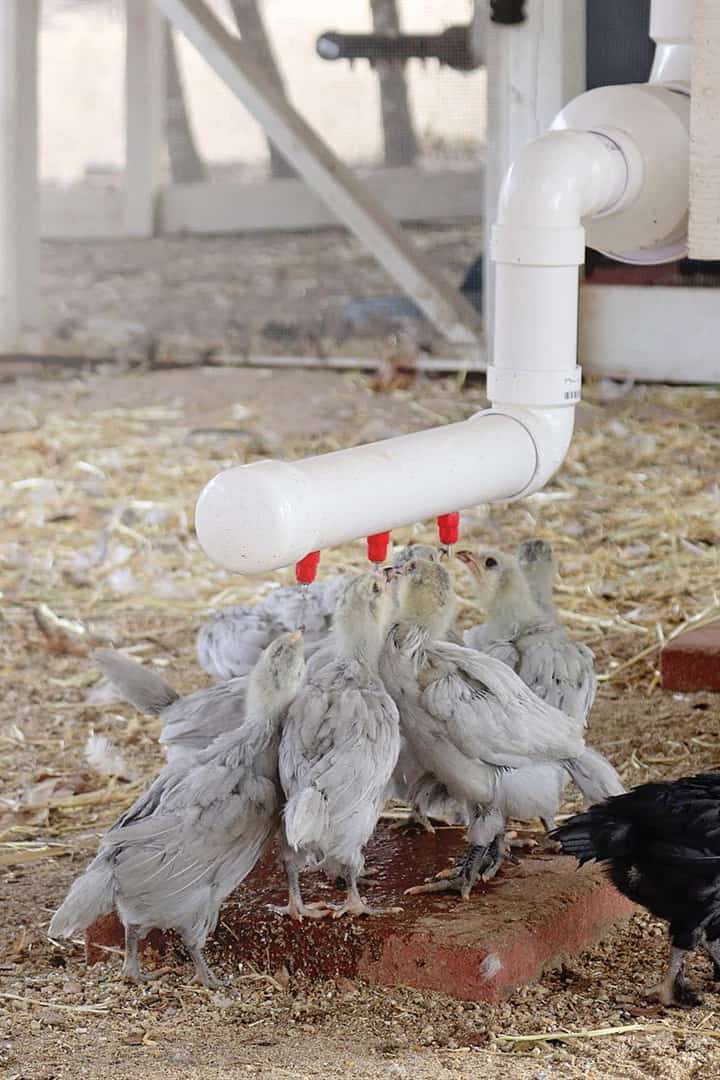
- If you feed your birds first, the crop may lack the required moisture, especially as the birds are likely dehydrated after going several hours without water. So, before you feed your chickens, it is best to give them some water.
- Give them wetted feeds to help things get started because it will provide the moisture their crops need.
- Give your chickens food once they have drank enough water to replenish their energy. But, a few soaked and boiled whole grains, which are easier to digest, may be beneficial.
How Much Water Do Chickens Need?
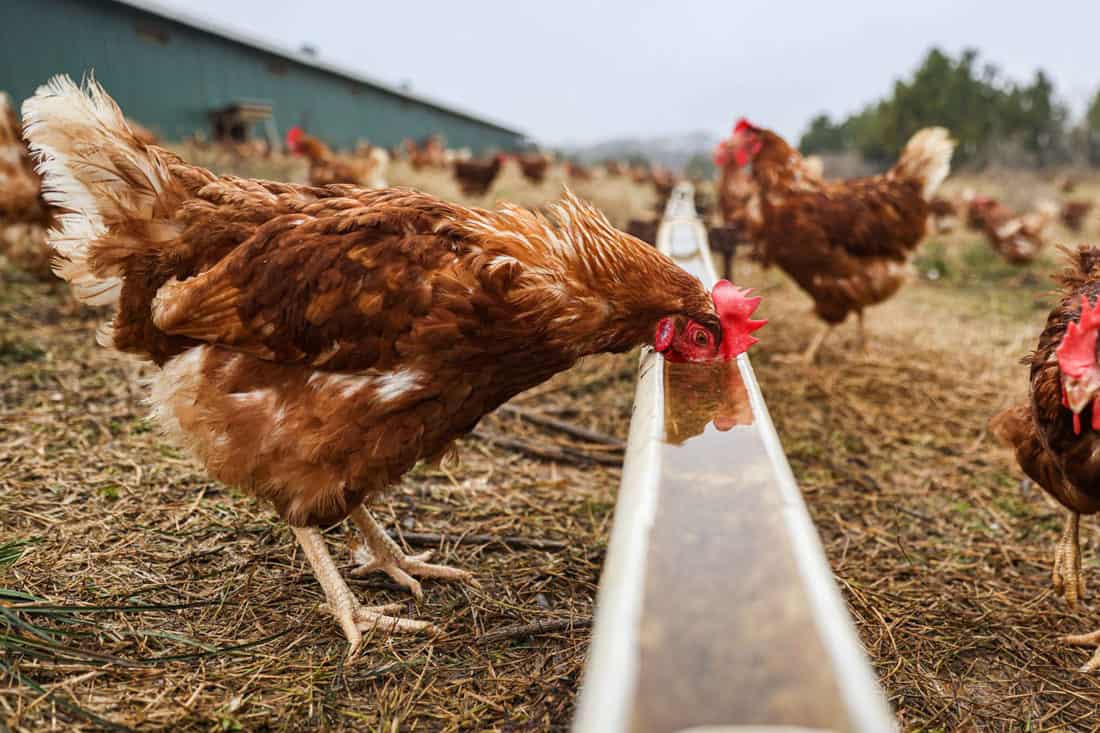
Chickens living indoors can drink approximately 180 ml to 250 ml of water per day. But flocks kept outside may consume up to 500 ml of water per day, easily twice as much as those indoors.
Due to their rapid growth, broilers drink more frequently and easily consume one liter of water per day. Also, birds kept in confinement may drink more than free-range birds since they primarily consume dry chicken feed. In this regard, it is best to consider providing your birds with 500ml of water every day.
Hot temperatures can quickly heat the water in those containers, making it practically undrinkable. Also, water will evaporate faster if you expose it to sunlight for too long. So, if you raise hens in scorching climates, you may need to provide clean water up to four times per day.
5 Tips for Giving Water to Chickens
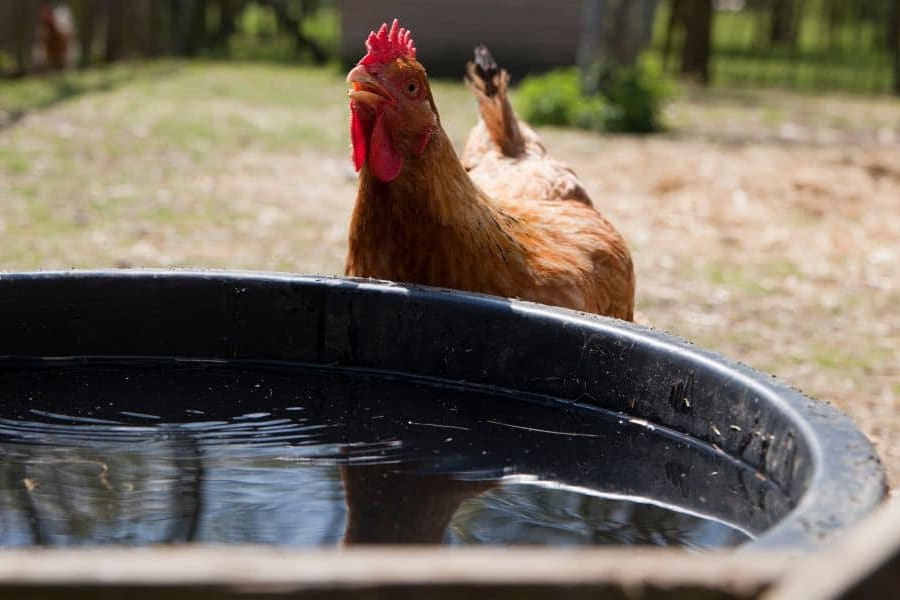
#1. Raise the water containers off the ground
When chickens scratch themselves, they get dirt and small debris all over the place. These materials may affect the quality of their drinking water. It may cause them harm and health problems if they drink dirty water.
So, to solve this problem, it is best to place the water containers at a little elevated area where the chickens can reach.
#2. Offer two or more waterers
Chickens have a pecking order, which can exclude those at the bottom of the flock. Some chickens might end up with little or no water at all. Therefore, for large flocks, a single water source might not suffice to keep them hydrated.
#3. Keep the water containers in the shade
When your chickens’ water heats up, it will deplete containers faster and leave your chickens with nothing to quench their thirst. So, it is best to keep water containers in the shade to avoid these issues and triple your workload.
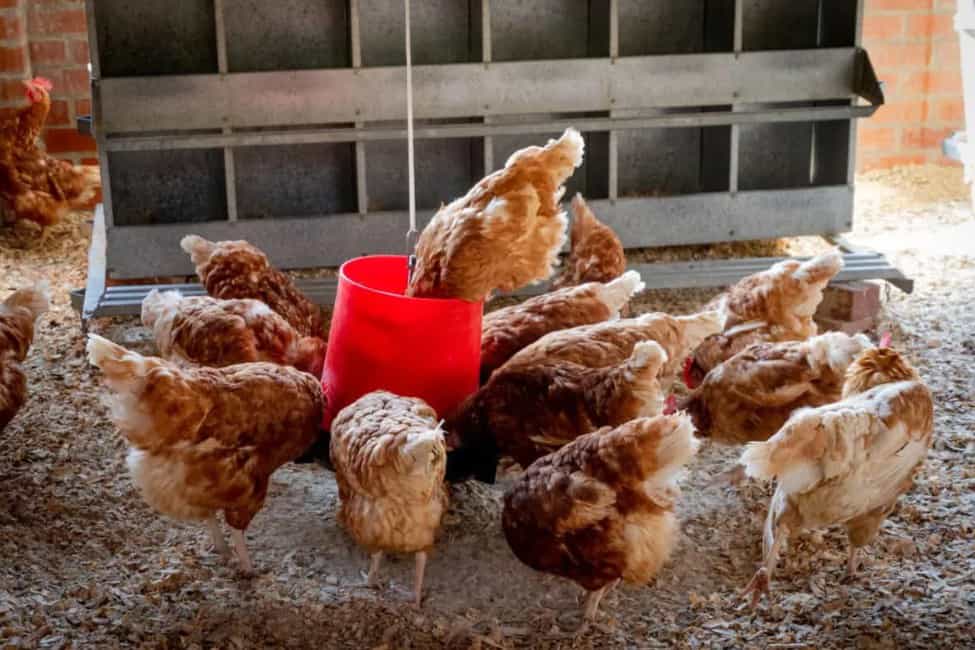
#4. Keep the containers from other animals
It is best to keep the water containers hidden from other animals so that chicks do not run out of water. Also, it would be best to place water vessels in regions that are out of the reach of wild birds and other critters that get thirsty.
#5. Add some apple cider vinegar at least once a week
Water offers various benefits for chickens, including aiding digestion. Given chickens’ tendency to consume almost anything, aiding their digestion with apple cider vinegar can be beneficial.
You can add a touch of apple cider vinegar to the water sources on the days you choose to do this. Apple cider not only aids digestion but also aids in the detoxification process.
Conclusion
As previously mentioned, chickens can generally go two days or 48 hours without drinking water. However, various factors, including their environment, breed, and age, play a crucial role in determining this duration. Nonetheless, make sure your birds have an adequate quantity of water to keep them healthy, active, and happy throughout the day.

Joseph Hudson has been raising chickens for over 15 years. In 2018, he completed the Agriculture & Natural Resources program at Mt. San Antonio College. He currently raises over 1400 chickens on his 7.5-hectare farm. He keeps sharing his experience on raising healthy and happy chickens on Chicken Scratch The Foundry.
